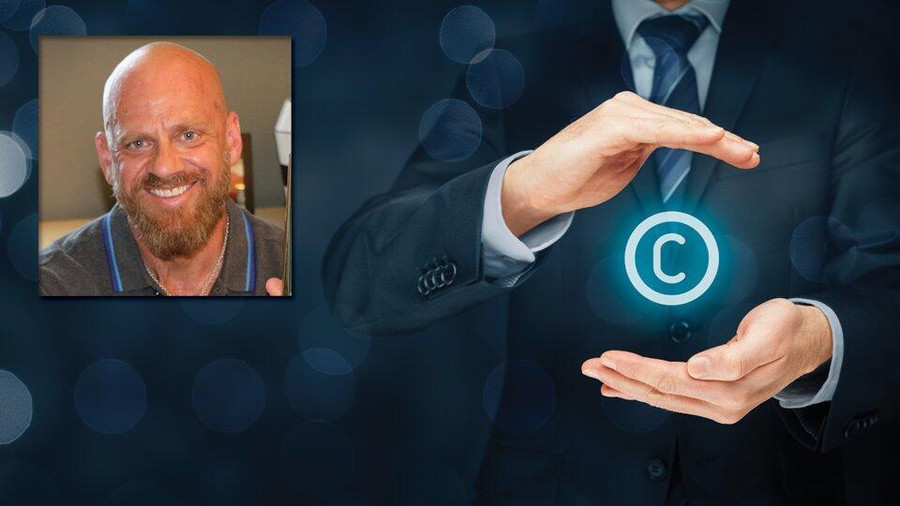As many people say, there is no sense in whining about something unless you have a potential remedy. In my last opinion piece, titled “Protecting Innovation” (in the November issue) I made an argument that small innovation companies are being robbed of their rightful revenue by intellectual property (IP) theft. In this article I will present one potential way to address this issue seriously, in a way that I feel is simple, meaningful, and uses good judgment and teamwork as the engine.
To recap, last time I looked at the real cost to innovators of IP theft, and the number of cost savings that an IP thief — or, if you prefer, “designer who is inspired” — has to gain by just copying groundbreaking innovations. This typically happens after the innovation has proven itself, and all the hard and costly development work has been completed. I also suggested that there is a general acceptance of this practice and that the first tier of buyers are usually well aware of the IP theft or “inspiration,” and purchase and sell the knock-offs without much of a fight.
An Innovation Council would send a powerful, unified message of support for innovation and innovators, the impact of which would be to give fair notice to copycat manufacturers that there will be obstacles to selling a copy.
I also described the usual list of research and development (R&D) costs, both time and cash investment, that go into innovating a single product. Honestly, being a copycat is a great business model, because they take someone else’s idea and design and build their copy or “inspired” version after it is proven without having to spend any of the innovator's costs, while reducing risk substantially as the product is already proven. What do they eliminate? Years of R&D, prototyping, direct sales efforts, training effort, public relations expenses, etc.
Not only does the copycatting lose innovators substantial revenues, but the onus now falls on them to spend/lose even more money, usually in legal services, to prove any claim of IP infringement. Meanwhile, the knock-offs have no such costs or risks and can freely cash in without any real obstacles. It isn’t fair but that is business. Or is it?
I recognize that when a distributor or retail buyer chooses not to buy a product because there is something they don’t like about it, they’re exercising their right to be selective and do so without any need to justify it with a legal argument. I propose that buyers should have an interest in protecting innovators by boycotting the obvious cash-in of the “inspired” products, or products that leverage borrowed (stolen) IP, with or without a patent.
When we look at what LELO or Womanizer have developed in terms of radical new innovation, it is easy to see who is using them as inspiration and cashing in on it. Is it fair that they lose revenue to a copier for something they invented? Does the industry benefit from having these innovations? Of course it does, but then why are we not doing something more proactive about ensuring a future for the smaller innovators that are just starting out, or the ones who continue in spite of these challenges?
To be clear, the issue I’m addressing is the copying of a design very closely so that it is obvious it is intended to take market share from the original. This is different than the innovation of a new product based on a previous product, the end result of which is an entirely new product. I support all innovation, as new innovation is the key to achieving a progressive and expanding industry and should inspire many new products from other design houses.
Considering the difficulties that buyers might face, if they were to randomly say “yes” to one knock-off and “no” to another, made me wonder: How could the industry support innovators better? And that gave rise to the following proposal.
My proposal is to form an “Innovation Council,” the mission of which would be to formally recognize innovations on a regular basis. By raising the visibility of the innovative product upon its launch, the council could publicize the product by name, not only giving it a great boost, but also thereby notifying manufacturers that a copy will not be purchased, before they set the wheels in motion to develop it.
The great thing about our industry is that it really is small, so just a few motivated buyers could actually achieve some very meaningful results on behalf of the innovators. How difficult would it be for a group of forward-thinking buyers to get on a conference call once a month to discuss the latest innovations and designate those they consider “special treatment” products? I know many buyers who are already very protective and supportive of innovators. What I am suggesting is we take it one step further.
There will always the issue of, “Well, if he sells the knock-offs, to stay competitive I need to do the same.” Implementing a policy on not selling knock-offs is unrealistic and probably laughable to many in our industry. Even if it is the morally right thing to do, doing so would come with prohibitive challenges.
Any company implementing such a policy would be forced to make some tough decisions. Even with the legal advice of an IP lawyer, such a policy would be open to many interpretations and gray areas, as there are always at least two sides to consider in these battles. Additionally, companies may feel pressure from their sales departments and even the offending (perhaps longstanding) partner manufacturers, pushing their new line of products.
An Innovation Council would send a powerful, unified message of support for innovation and innovators, the impact of which would be to give fair notice to copycat manufacturers that there will be obstacles to selling a copy. It also would serve as a clear call-to-action to buyers and sales teams.
Buyers, when presented with a potential knock-off, can bring it to the council, which can then judge the product collectively. Should it be deemed a copy, the council would issue an industry-wide no-buy advisory.
I’d like to make a point here: I don’t think the legal aspects of a patent should be invoked in these kinds of buying decisions any more than they are in other buying decisions. I know from firsthand experience that some distributors require a legal ruling to deem a copy a copy. However, this just seems to dismiss the value of judgment and insight that is easily within any senior buyer’s know-how and to put an unfair burden on the innovators. Smart buyers can sniff out a cheat. It is unfair, and frankly a waste of time, to require innovators to produce an expensive legal document for something that is obvious.
If a group of buyers discusses a list of innovations, perhaps brought to their attention by an application process by the innovators, they could choose the ones they feel are truly innovative and apply this “special treatment” set of conditions/rules in respect of it. These could include letting your current vendor list, or maybe a selection thereof, know that you have decided to protect the innovation and will not be buying any close copies of it for a certain period (I’d say at least five years, though a patent is good for 17 years); letting the salesforce know to promote the original innovation for the benefit of everyone; and showing it on your innovative/innovators products page (if you have one).
I believe this proposal deserves some consideration, though I am sure there may be an easier and better way to achieve its objective. But regardless of how it is done, introducing the same power to assess innovation that buyers have in all other buying decisions is going to make a difference to the whole industry. If this sounds unrealistic, I honestly think you need to look at the amount of sales in total of any original product and then do the same with all the products that have been inspired by/copied from it. You will most likely see that, first of all, creating a new category is a benefit to the industry, and second, a lot of revenue goes to those who are followers.
Is the stealing of IP by making copies of designs going to be tolerated? This is just business and it happens in all industries, so it is OK? My opinion: It is never OK to steal IP, which ultimately hurts the risk-taking innovators. I think our industry needs all the innovators it has — and I think we have the opportunity to do something about it.
Steve Callow is the inventor, designer and CEO of Florida-based Perfect Fit Brand. Established in 2011, Perfect Fit is the manufacturer of innovative, high-quality and easy-to-use sexual health aids and sex toys for the full gender and sexuality spectrum. Callow founded the company based on the principle that sex toys should not only look and feel great, but must, above all, perform.








